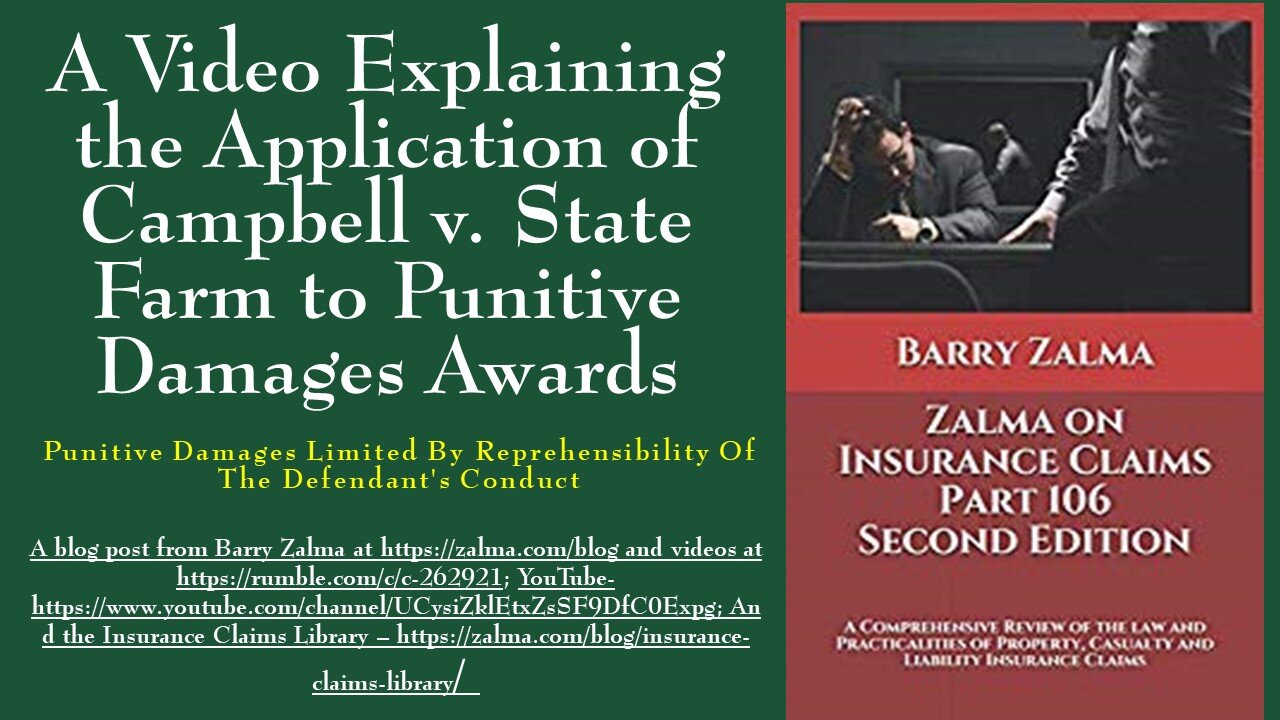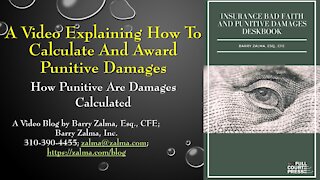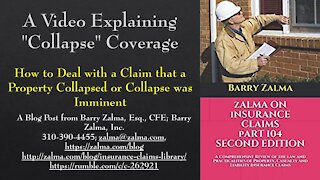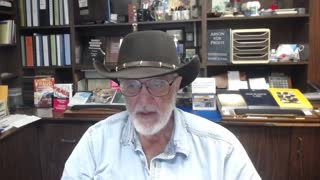Premium Only Content

A Video Explaining the Application of Campbell v. State Farm to Punitive Damages Awards
Punitive Damages Limited by Reprehensibility of the Defendant's Conduct
In State Farm Mut. Auto. Ins. Co. v. Campbell (2003) 538 U.S. 408, the United States Supreme Court held that "'the most important indicium of the reasonableness of a punitive damages award is the degree of reprehensibility of the defendant's conduct.'" (Id. at p. 419.) Moreover, in Campbell, the high court noted that its "'holdings that a recidivist may be punished more severely than a first offender recognize that repeated misconduct is more reprehensible than an individual instance of malfeasance.'"
In California punitive damages have long been a part of traditional state tort law. [Pacific Mutual Life Insurance Co. v. Haslip (1991) 499 U.S. 1, 15, 111 S.Ct. 1032, 113 L.Ed.2d 1 (Haslip)], and the states have “broad discretion” with respect to their imposition. But because a state's system for awarding punitive damages may deprive a defendant of fair notice of the severity of the penalty that a State may impose and threaten arbitrary punishments, the United States Supreme Court has found that the Constitution imposes certain limits, in respect both to procedures for awarding punitive damages and to amounts forbidden as grossly excessive. [Philip Morris USA v. Williams (2007) 549 U.S. 346, 352–353, 127 S.Ct. 1057, 166 L.Ed.2d 940 (Williams).)
Although the Supreme Court declined to impose a bright-line ratio which a punitive damages award cannot exceed, the U.S. Supreme Court, guided by this history, concluded that in practice, few awards exceeding a single-digit ratio between punitive and compensatory damages, to a significant degree, will satisfy due process. Following the high court's guidance, the California Supreme Court explained that “ratios between the punitive damages award and the plaintiff's actual or potential compensatory damages significantly greater than 9 or 10 to 1 are suspect and, absent special justification cannot survive appellate scrutiny under the due process clause. [Nickerson v. Stonebridge Life Ins. Co., 63 Cal.4th 363, 371 P.3d 242, 203 Cal.Rptr.3d 23 (Cal., 2016)
© 2021 – Barry Zalma
Barry Zalma, Esq., CFE, now limits his practice to service as an insurance consultant specializing in insurance coverage, insurance claims handling, insurance bad faith and insurance fraud almost equally for insurers and policyholders. He also serves as an arbitrator or mediator for insurance related disputes. He practiced law in California for more than 44 years as an insurance coverage and claims handling lawyer and more than 52 years in the insurance business. He is available at http://www.zalma.com and zalma@zalma.com.
Mr. Zalma is the first recipient of the first annual Claims Magazine/ACE Legend Award.
Over the last 53 years Barry Zalma has dedicated his life to insurance, insurance claims and the need to defeat insurance fraud. He has created the following library of books and other materials to make it possible for insurers and their claims staff to become insurance claims professionals.
Go to the podcast Zalma On Insurance at https://anchor.fm/barry-zalma; Follow Mr. Zalma on Twitter at https://twitter.com/bzalma; Go to Barry Zalma videos at Rumble.com at https://rumble.com/c/c-262921; Go to Barry Zalma on YouTube- https://www.youtube.com/channel/UCysiZklEtxZsSF9DfC0Expg; Go to the Insurance Claims Library – https://zalma.com/blog/insurance-claims-library/ Read posts from Barry Zalma at https://parler.com/profile/Zalma/posts; and Read last two issues of ZIFL here.
-
 7:40
7:40
Barry Zalma, Inc. on Insurance Law
11 months agoLoss of Inventory by Bankruptcy
158 -
 18:20
18:20
Barry Zalma, Inc. on Insurance Law
4 years agoA Video Explaining the Controls on Punitive Damages
84 -
 14:36
14:36
Barry Zalma, Inc. on Insurance Law
4 years agoA Video Explaining how to Calculate and Award Punitive Damages
60 -
 18:07
18:07
Barry Zalma, Inc. on Insurance Law
4 years agoA Video Explaining the Tax Consequences of Bad Faith Punitive Damages
156 -
 17:01
17:01
Barry Zalma, Inc. on Insurance Law
4 years agoA Video Explaining "Collapse" Coverage
158 -
 18:36
18:36
Barry Zalma, Inc. on Insurance Law
3 years agoA Video Explaining More Construction Defects
95 -
 16:51
16:51
Barry Zalma, Inc. on Insurance Law
3 years agoA Video Explaining the Structure of Insurance
122 -
 16:55
16:55
Barry Zalma, Inc. on Insurance Law
4 years agoA Video Explaining Intentional Acts Exclusions
72 -
 14:52
14:52
Barry Zalma, Inc. on Insurance Law
4 years agoA Video Explaining The Creation And Application Of The Duty To Defend
25 -
 2:12
2:12
junelarson
4 years agoColor Street Application Video
94